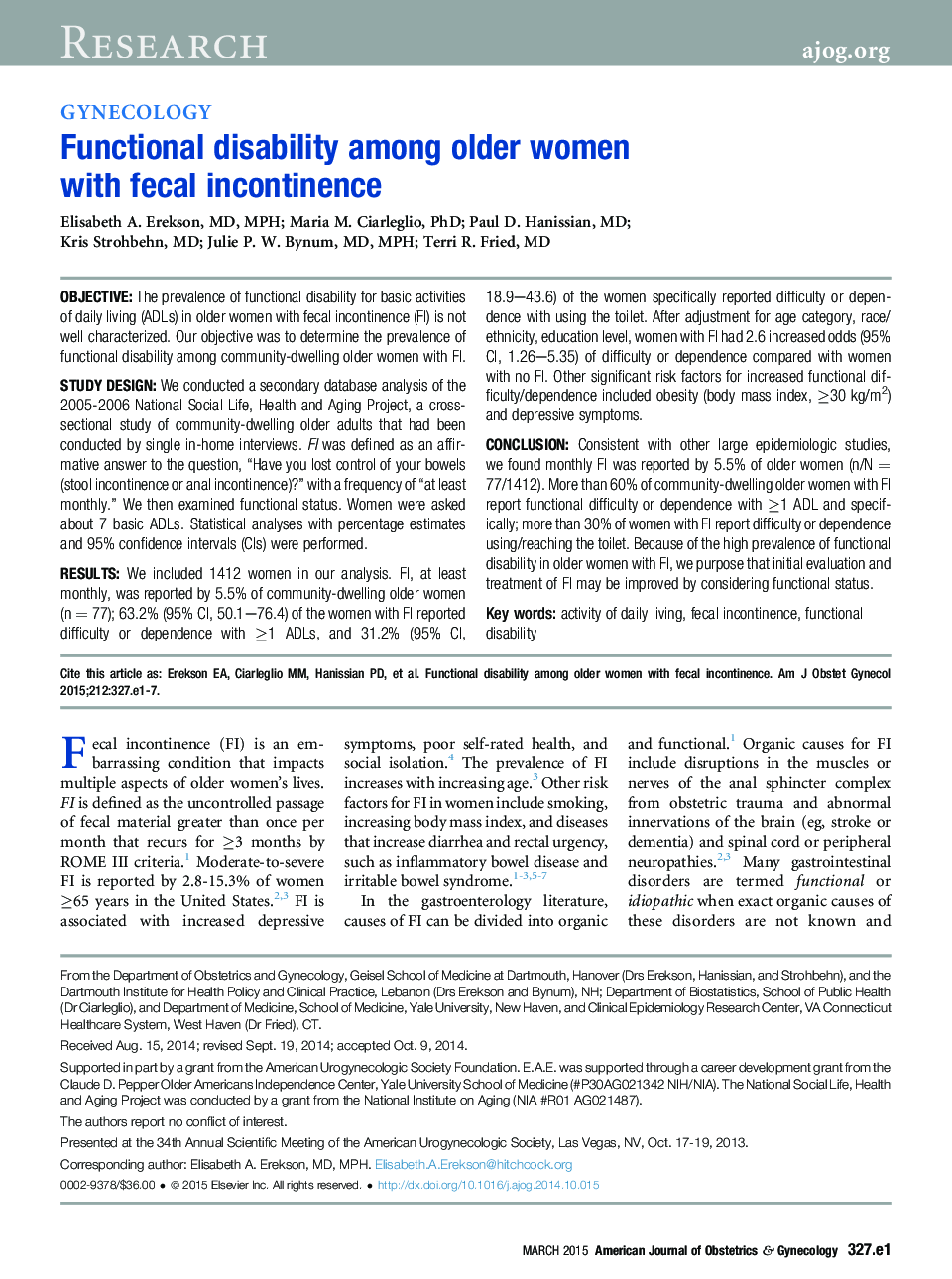| کد مقاله | کد نشریه | سال انتشار | مقاله انگلیسی | نسخه تمام متن |
|---|---|---|---|---|
| 6144332 | 1594908 | 2015 | 7 صفحه PDF | دانلود رایگان |
ObjectiveThe prevalence of functional disability for basic activities of daily living (ADLs) in older women with fecal incontinence (FI) is not well characterized. Our objective was to determine the prevalence of functional disability among community-dwelling older women with FI.Study DesignWe conducted a secondary database analysis of the 2005-2006 National Social Life, Health and Aging Project, a cross-sectional study of community-dwelling older adults that had been conducted by single in-home interviews. FI was defined as an affirmative answer to the question, “Have you lost control of your bowels (stool incontinence or anal incontinence)?” with a frequency of “at least monthly.” We then examined functional status. Women were asked about 7 basic ADLs. Statistical analyses with percentage estimates and 95% confidence intervals (CIs) were performed.ResultsWe included 1412 women in our analysis. FI, at least monthly, was reported by 5.5% of community-dwelling older women (n = 77); 63.2% (95% CI, 50.1-76.4) of the women with FI reported difficulty or dependence with â¥1 ADLs, and 31.2% (95% CI, 18.9-43.6) of the women specifically reported difficulty or dependence with using the toilet. After adjustment for age category, race/ethnicity, education level, women with FI had 2.6 increased odds (95% CI, 1.26-5.35) of difficulty or dependence compared with women with no FI. Other significant risk factors for increased functional difficulty/dependence included obesity (body mass index, â¥30 kg/m2) and depressive symptoms.ConclusionConsistent with other large epidemiologic studies, we found monthly FI was reported by 5.5% of older women (n/N = 77/1412). More than 60% of community-dwelling older women with FI report functional difficulty or dependence with â¥1 ADL and specifically; more than 30% of women with FI report difficulty or dependence using/reaching the toilet. Because of the high prevalence of functional disability in older women with FI, we purpose that initial evaluation and treatment of FI may be improved by considering functional status.
Journal: American Journal of Obstetrics and Gynecology - Volume 212, Issue 3, March 2015, Pages 327.e1-327.e7
